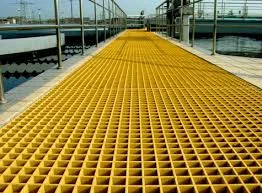
-
 Afrikaans
Afrikaans -
 Albanian
Albanian -
 Amharic
Amharic -
 Arabic
Arabic -
 Armenian
Armenian -
 Azerbaijani
Azerbaijani -
 Basque
Basque -
 Belarusian
Belarusian -
 Bengali
Bengali -
 Bosnian
Bosnian -
 Bulgarian
Bulgarian -
 Catalan
Catalan -
 Cebuano
Cebuano -
 China
China -
 China (Taiwan)
China (Taiwan) -
 Corsican
Corsican -
 Croatian
Croatian -
 Czech
Czech -
 Danish
Danish -
 Dutch
Dutch -
 English
English -
 Esperanto
Esperanto -
 Estonian
Estonian -
 Finnish
Finnish -
 French
French -
 Frisian
Frisian -
 Galician
Galician -
 Georgian
Georgian -
 German
German -
 Greek
Greek -
 Gujarati
Gujarati -
 Haitian Creole
Haitian Creole -
 hausa
hausa -
 hawaiian
hawaiian -
 Hebrew
Hebrew -
 Hindi
Hindi -
 Miao
Miao -
 Hungarian
Hungarian -
 Icelandic
Icelandic -
 igbo
igbo -
 Indonesian
Indonesian -
 irish
irish -
 Italian
Italian -
 Japanese
Japanese -
 Javanese
Javanese -
 Kannada
Kannada -
 kazakh
kazakh -
 Khmer
Khmer -
 Rwandese
Rwandese -
 Korean
Korean -
 Kurdish
Kurdish -
 Kyrgyz
Kyrgyz -
 Lao
Lao -
 Latin
Latin -
 Latvian
Latvian -
 Lithuanian
Lithuanian -
 Luxembourgish
Luxembourgish -
 Macedonian
Macedonian -
 Malgashi
Malgashi -
 Malay
Malay -
 Malayalam
Malayalam -
 Maltese
Maltese -
 Maori
Maori -
 Marathi
Marathi -
 Mongolian
Mongolian -
 Myanmar
Myanmar -
 Nepali
Nepali -
 Norwegian
Norwegian -
 Norwegian
Norwegian -
 Occitan
Occitan -
 Pashto
Pashto -
 Persian
Persian -
 Polish
Polish -
 Portuguese
Portuguese -
 Punjabi
Punjabi -
 Romanian
Romanian -
 Russian
Russian -
 Samoan
Samoan -
 Scottish Gaelic
Scottish Gaelic -
 Serbian
Serbian -
 Sesotho
Sesotho -
 Shona
Shona -
 Sindhi
Sindhi -
 Sinhala
Sinhala -
 Slovak
Slovak -
 Slovenian
Slovenian -
 Somali
Somali -
 Spanish
Spanish -
 Sundanese
Sundanese -
 Swahili
Swahili -
 Swedish
Swedish -
 Tagalog
Tagalog -
 Tajik
Tajik -
 Tamil
Tamil -
 Tatar
Tatar -
 Telugu
Telugu -
 Thai
Thai -
 Turkish
Turkish -
 Turkmen
Turkmen -
 Ukrainian
Ukrainian -
 Urdu
Urdu -
 Uighur
Uighur -
 Uzbek
Uzbek -
 Vietnamese
Vietnamese -
 Welsh
Welsh -
 Bantu
Bantu -
 Yiddish
Yiddish -
 Yoruba
Yoruba -
 Zulu
Zulu
Optimizing Water Tank Management for Efficiency and Sustainability
Understanding GRP Water Tanks Key Features and Benefits
Glass Reinforced Plastic (GRP) water tanks have become increasingly popular in various sectors, including agriculture, industrial processes, and residential applications. These tanks, made from a composite material consisting of glass fibers and resin, offer numerous advantages compared to traditional storage options like concrete or steel. In this article, we will explore the key features and benefits of GRP water tanks, illustrating why they are an excellent choice for water storage needs.
Durability and Longevity
One of the standout features of GRP water tanks is their remarkable durability. Unlike metal tanks that can corrode over time, or concrete tanks that may crack under pressure, GRP tanks are resistant to rust, corrosion, and weathering. This ensures that they can withstand harsh conditions, including extreme temperatures and exposure to chemicals, making them suitable for various environments.
GRP tanks are also lightweight compared to their concrete or metal counterparts. Their reduced weight makes them easier to transport, install, and position on site, which can significantly reduce labor costs and installation time.
Customizable and Versatile
GRP water tanks can be manufactured in a variety of shapes and sizes, allowing for extensive customization to meet specific needs and site requirements. This versatility makes them suitable for various applications, from domestic water supply to large-scale industrial use. Additionally, these tanks can be designed to fit into limited spaces, making them ideal for urban settings where installation area might be a constraint.
Maintenance-Free
grp water tank

Another significant benefit of GRP water tanks is the minimal maintenance required. Once installed, these tanks do not need frequent upkeep, which reduces ongoing operational costs. Their non-corrosive nature means they won't require regular treatments or coatings to protect from rust or degradation, making them a hassle-free option for water storage.
Hygiene and Safety
Hygiene is a crucial factor when it comes to water storage, and GRP tanks excel in this aspect. The smooth interior surface of GRP reduces the risk of algae growth and bacterial contamination, ensuring that the water remains clean and safe for consumption. Additionally, many GRP tanks come equipped with UV-resistant properties that prevent harmful light penetration, further enhancing water quality.
Environmental Friendliness
Finally, GRP water tanks are environmentally friendly. The materials used in their production can often be recycled, contributing to a more sustainable approach to water storage. Furthermore, their long lifespan reduces the need for frequent replacements, thereby minimizing environmental impact.
Conclusion
In summary, GRP water tanks offer numerous advantages that make them an outstanding choice for a wide range of applications. Their durability, customization options, low maintenance requirements, hygiene standards, and eco-friendliness collectively contribute to their growing popularity. For those seeking a reliable solution to water storage, GRP tanks provide a modern and efficient alternative.









